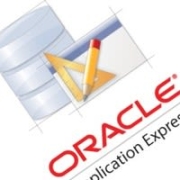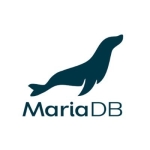
Oracle Database Scalability
I rate Oracle Database's scalability nine out of ten. The database regularly releases new versions with better performance and security features. However, no database can receive a perfect score as there are always improvements to be made.
View full review »
Regarding scalability, I think Oracle is expensive, and it's difficult to connect with cloud. I would rate its scalability as seven.
View full review »SG
Satishbabu Gunukula, Oracle ACE
Sr. Tech Systems Architect at Intuitive
The solution has great scalability solutions.
View full review »Buyer's Guide
Oracle Database
March 2025
Learn what your peers think about Oracle Database. Get advice and tips from experienced pros sharing their opinions. Updated: March 2025.
848,989 professionals have used our research since 2012.
EM
Emmanuel Morka
Head, Database Administrators at Ecobank Transnational Incorporated
We do a lot of scaling. When we need to scale, we need to go through the Change Application Board at the company to make sure everything is properly documented, and everyone is made aware of the changes. When you scale or make changes on the system, it doesn't lead to downtime. that's extremely important to note. We use a rank model where you do changes one node at a time.
Ultimately, the solution is very easy to scale.
View full review »CD
Craig Domanski
Infrastructure Manager at Lactanet
There's no problem with scalability. It's quite easy for an organization to expand if they need to.
We have many users on the solution, including myself, and I have an administrator role. We have five database administrators that manage the day to day operations of the database. Then we have about 20 developers that develop different applications or make changes to the database for us. There are also internal users. We probably have, I'd say, 500 employees that have access at any given time. Our customers also have access. In total, we have about 15,000 people on the solution.
View full review »Considering the number of instances for which my company uses the product, I feel it is a scalable solution. I rate the scalability a nine out of ten.
PS
Paul Stearns
President at Advance Consulting Enterprise
In the data warehousing database or application, we have tens of millions of rows in different tables, and we have no problems there. However, in that particular application, we're not dealing with transaction processing. So, I can't answer the scalability in terms of transaction processing. On the hardware platform that I've put together for the main database of this one customer, I am very pleased with the performance of the data warehousing aspects and being able to query data quickly and do bulk inserts and things of that nature. For data warehousing scalability, I can attest to the fact that it is great, but for transaction processing, I don't have the experience to be able to provide information.
Two of our biggest clients are quasi-governmental in the sense that their business is based on government funding. One has 60 users who use the application day in and day out, and their database is relatively small. The other application has about 20 dedicated internal users, and then there is a web interface. It has around 3,000 to 5,000 users, but typically, there are about 20 concurrent users.
View full review »I rate the solution’s scalability a six or seven out of ten.
View full review »VD
Vikas Dixit
IT Manager at a financial services firm with 10,001+ employees
It is scalable. The number of users differed a lot. There were not that many who used it directly. It was mainly was used by programs written by me. There might be around 100 users who used these programs.
View full review »CS
Chris Chris
Group Head, Internal Controls & Compliance at Glico Group Ltd.
We face scalability issues at times due to the vendors. I rate it a seven out of ten. My company has 150 users. I don't use it often, maybe once a week. However, some people use it for about eight hours daily.
View full review »The product is highly scalable.
We have thousands of users across multiple locations and departments, all served by a centralized data center that supports various public sector departments.
We use it in our large data centers to manage and store large volumes of data with high availability and disaster recovery capabilities.
View full review »It is a good and scalable solution. Scalability-wise, I rate the solution a nine out of ten.
I have seen multiple use cases in different companies. I see that for one million or two million files, it works fine, but with twenty million files, it slows down because it lacks NoSQL properties. Around 30 to 40 developers use the tool in my company.
SR
Sharique Rizvi
Subject Matter Expert at Cyprobes
The tool's scalability is fine. However, you need to pay for additional nodes.
Scalability is an issue because expanding the system requires additional hardware and licenses for each node. There's no option for mirroring the initial license across different nodes, so each new node requires its license. My company has 300,000 users. We're planning to increase usage gradually, depending on customer demand and database growth, aiming for about a 10 to 20 percent increase annually.
The tool is scalable. We have DevOps. We have 200 users in our organization. We use it extensively.
The scalability of Oracle Database is very good, which I rate between nine and ten.
View full review »The solution’s scalability is good.
The scalability of the solution is good.
We have approximately 70 users that are using the solution through the ERP.
View full review »It is a scalable solution. You can always tune the parameters and decide on how much to scale based on the memory available. You can configure your SGA along with memory, and once you outgrow it, you can always reconfigure and re-initiate it, making it a scalable tool.
Over a long period of time, my company has been dealing with a user base of various sizes. There are times when the user base can go up to 200 people.
The product is extensively used, and my company plans to increase its use in the future.
We don't have an issue with the solution's scalability. It's expandable.
What we see is Mongo and Cassandra, and many other databases that are extremely scalable and distributed. With Oracle, obviously, there are other types of databases that are performing better in this area. Obviously, they could improve scalability from a scalability perspective.
It is highly scalable. It is scalable to the best of our needs. We have around 10,000 to 12,000 users.
View full review »Oracle systems are highly scalable, Backup and Recovery strategy needs to be tweaked and is not as scalable as core database system. It needs some special attention to meet your RTO
View full review »We haven’t exactly scaled it right now. Once we upgrade the remaining databases, we can go ahead with scaling it.
View full review »Oracle Database is easier to scale up. The number of users using the solution in our organization depends on different applications normally, and it may be over a million being used by users for a customer.
OA
Omar Al-Qaysie
Senior Chief Engineer at ministry of electricity
The solution is scalable. If a company needs to expand it outward, it can do so.
View full review »You can start with the basic database, so the Oracle single instance. You can scale that pretty much to whatever size, symmetric, multi-processing processor you want to put it on. If that's not going to scale large enough for you, then you can do RAC clusters and you can build basically a little database mainframe. If you've got extra money to spend, I've got this wonderful solution called Exadata. I wish that Exadata was it, that that was the only thing Oracle had to offer. It's that far superior to the standard database, but it requires both hardware and software and there's special licensing. You can't build an Exadata at your own and just get the software. It is just standard Oracle with some hardware tricks. That's impressive, that you can make a database machine that outruns anything and it's still the standard database. They didn't have to really change it.
View full review »It scales vertically. So, the more stuff you want to do, you have to get a bigger server. That's okay if you can do that, but the strategy now is that everybody is scaling horizontally because you can buy a ton of cheap servers and spread them out all over the network.
We have about 10,000 users, and they're doing inventory control. We don't plan to increase its usage. We are planning to decrease its usage and go to Postgres.
View full review »DN
Deepak Nandal
SAM Consultant at a tech services company with 10,001+ employees
Oracle Database is pretty scalable. And if you are planning to implement or leverage the containers, Oracle has recently added enterprise containers into their stack, so we can leverage that technology to enhance the scalability of the database.
View full review »I would say the scalability sets it apart from others. We run a big manufacturing plant and the database is growing at a very very, high rate, but we know with the Oracle RDBMS, it can sustain growth from now and into the future.
View full review »PC
Prajith Chowthee
Independent Consultant at Unaikui
Depending on where you deploy, Oracle is also scalable. Sixteen sites with 50 users each are using this solution.
I rate the solution’s scalability a ten out of ten.
It is scalable. Because we are using the cloud platform, it is very easy to scale it up. We have approximately 1,000 users.
Scalability depends on how much money you've got. It depends on the quality of your hardware. Scalability is not an Oracle problem.
In terms of the number of users, we have maybe 5,000 people who we can log on to one system and put in expense claims. We don't have plans to increase its usage.
View full review »PB
Prasad Bagaregari
Enterprise Analytics at a tech services company with 10,001+ employees
Scalability differs depending on the schema created in Oracle Database to access the database artifacts. For example, in a normal recessional database, which does not have much centralized or decentralized schema, scalability can be very high. However, in cases where there is a centralized schema, the scalability has to be defined by the database administrator.
Our whole engineering team currently uses this solution.
View full review »AG
Arief Gunawan
Product manager at Metrodata Electronics Tbk PT
It is scalable. Many customers of ours are using Oracle Database as their database infrastructure. Our customers are from all industries, such as communication, manufacturing, distribution, retail, etc. We plan to keep selling this solution.
View full review »OM
Osama Mustafa
Cloud Expert | DevOps | Oracle Consultant at confidential
The Performance for the database in general is good and the tools to analyze the performance in case you have some issue it's perfect and make it easier for you.
View full review »MA
Maurice Aelion
Senior DBA & IT Consultant at MA Consulting
Scalability is one of the biggest features of Oracle Database. We can scale out or scale in using clusters, using the shard solutions that we have in the market today. Oracle brings a large number of methods for scaling.
View full review »We sized our database well for what our expected transactions were going to be. We never had to scale it up. Of course, you add space to it over time. We have done that with nothing that causes any issues.
View full review »It's scaled to our needs.
View full review »Oracle Database is quite scalable.
They have a large number of options depending on the needs of the organization, allowing any organization to deploy according to their requirements. You can add or remove items as time allows, it's very scalable.
In our organization, we have more than 100, but less than 1,000 users.
Recently, I proposed the migration from on-premises to the cloud. I've noticed that alternatives are bringing a lot in the business, particularly in the cloud spectrum. Convincing customers to try to migrate to the cloud today is another task. It's more like there's something frightening there. I'm not sure what they're afraid of, but it's a matter of education and demonstration. I can download Oracle Database and experiment with it on my own, as long as I'm not using it for commercial purposes. I can do it if I try it on my own.
I believe they should increase that even in the cloud. They have an Oracle Always Free account on the cloud, but it has a time limit, of a month. They will give you one month's free package for you to try. I have tried it many times. What I've noticed is that they should add more products to the Always Free account so that people, particularly on our continent, who are still skeptical of the cloud, are not left out.
They believe they will inquire as to where we will store our information. How do you know you're getting access to our data? As a result, there is still a lot of information that needs to be taught. I think the best thing Oracle could do is try to improve on that so that most people can keep trying and see that there's nothing to be skeptical about.
View full review »The solution is very scalable. Ours was managing about 5,000 servers all over Egypt. The performance and historical transaction on sites is good, and if you need more storage on your database, you can do so with relative ease.
We have 200 users logged in at any given time.
View full review »Oracle is quite good in terms of scalability. 90% of our applications run on Oracle, so we have a lot of users.
View full review »It is very scalable. You can start with a small server, and you can scale it up by just increasing your licenses.
In terms of the number of users, for our data warehouse, there is only one application user. Other users interact with the database through the application. After you log onto the application, the application logs in to the database with a single user ID.
View full review »AG
Arief Gunawan
Product manager at Metrodata Electronics Tbk PT
If they need to, companies can easily add more nodes to the cluster. It's easy to use its cluster technology to scale. I would say it's rather easy to expand the solution if you need to.
View full review »GR
Gichuru Riria
ICT officer at Basaba
Around 500 users access Oracle Database regularly in our company. We haven't faced scalability issues; it's more than enough for our current needs.
View full review »MS
MOHAMMED SEHEN
IT Supervisor at Nebeaelhate IT
Oracle Database is scalable, e.g. if your company is growing well, you can easily reach the requirements of the company according to the number of users and performance when using the solution.
View full review »It is very scalable. In terms of its usage, it is used by our core banking system. So, it is used by one system. It is not used directly by people. We don't have any plans to increase its usage.
View full review »Oracle is very, very scalable. If a company needs to expand the solution, it can do so.
Our organization is quite large. There are hundreds of IT personnel using Oracle.
View full review »This is a scalable solution.
View full review »It's a very, very stable product. It's part of our 12C new features, I didn't see or feel a lot of issues, but I do recommend it because the data moving could serious impact to your database performance - so test it, before you move the production. So this comes to, not exactly how stable the product is, but how stable your rules are.
If you write the wrong rule, you move the active data to tier two storage, you will suffer your performance. And also, another thing is, when moving data, be careful because all DBAs know that, if you move data across the storage, potentially your index becomes invalidated. Then all your database query will go to the full table scan. Then you actually get a worse problem than ever.
So ADO, they tried their best to re-enable the indexes. But just be careful because in our experience, it's not 100 percent covered. So my advice is, check that. So after they move, use single query to check the index's status. If you found some index not valid, rebuild it (with) another single command, you can do that. That will ensure that you only get a good part of it, not the issue.
So the scalability has something to do with how much data you move around, so that's why you need actually scale. You need to have some idea about how much data (to move). You want to schedule a good time window, so that off your peak time, so you can you do data moving. The DBA is the one who knows this most, you need to plan ahead and test it ahead.
View full review »Obviously, the scalability factor was increased with the Oracle Real Application Clusters (RACs). You have multiple instances of Oracle, with the shared storage, so you can spawn multiple processes to do large volume data lifting. You don't want to rely on one instance alone. You don't want to load that one node alone. It can do everything. You can spread it across nodes. The RAC solution gives you that.
In terms of the data scalability itself, if you don't want a shared storage, you have solutions such as Exadata. It provides very good storage and gives you great performance.
In all respects, Oracle on all fronts is doing great, including scalability. I don't see any issues with it right now. As I’ve mentioned, the great thing about the product is that it keeps evolving and tries to improve.
I think it's great to have those features.
View full review »I don't think there's an issue with scalability. Most people are more concerned about performance because you have to encrypt and decrypt on the fly, but with hardware encryption modules that is really a null issue. There is very little performance impact. We've encrypted data out to 25 terabytes in one system and we had no performance issues.
View full review »Oracle Database is scalable.
Everyone in our organization is using the solution. We have approximately 2,000 users using it directly or indirectly. We have developers, DBAs, system administrators, business analytics people, auditors, and regular users. Additionally, applications are using the database.
View full review »MM
Mpho Morake
Group CEO at Mmusi Group
Oracle Database is scalable. It simply comes down to how you design the transaction screen of the database. We have more than 100 users because they use the applications.
View full review »EF
Emmanuel FOMUDE
Senior Oracle Database Administrator at a financial services firm with 51-200 employees
It is scalable. Around 40 to 50 customers are using Oracle Database.
View full review »The scalability of the solution is quite good. If a company needs to expand, it can do so relatively easily.
When you were just with bare metal, it wouldn't be as good as it is now with virtual machines as it does not take a lot to spin up another virtual machine and put Oracle on it and have it working. In the old days, when you had a piece of metal, you had to find another piece of metal, get it installed, and then start scaling up from there. With the VM, it's a lot better.
View full review »We haven't scaled because of the unique constraints of our customized datacenter, but we use Linux because of Windows limitations. But we have been able to go from a mom-and-pop garage shop to where we are now.
View full review »AB
Anup Babu Shrestha
Technical Manager - Enterprise Application at Thakral One (Pvt) Ltd
Oracle Database is scalable. I've deployed the solution at a government tax agency with more than 500 users. The core banking system was implemented at a bank with 22 branches all over Nepal and 200-plus users. Our most recent public sector project had over 100 users.
View full review »The RAC One feature that I mentioned is one of the highlights of Oracle. We're using that for scalability and management. If we're increasing we can easily plug the nodes into the DB and we can distribute the load. It's not a problem.
Right now we are creating these transaction logs from different DBs that we have in place so it's not directly any application or anyone in these dealings. ETL jobs are defined and in place so that we can extract and dump the logs into the Oracle DB.
We have a team of administrators working on it.
View full review »We have a really lightweight set up, we have the solution configured for 400 people.
View full review »The solution is scalable. 1,000 users are using this solution.
I rate the solution’s scalability a nine out of ten.
Oracle Database is scalable.
I would recommend Oracle Database for large enterprises because the smaller companies would not be able to afford it.
View full review »The scalability is very good. They are providing the structure, the architecture, and everything you need to scale. It's very easy to scale to whatever size you need. Usually, we can do scalable sites with no issue.
It is scalable. Currently, about 30 people are using it. We don't have any plans to increase its usage.
View full review »The scalability of the solution is very good. If a company needs to expand it, it can do so easily.
We do have plans to continue to use the product in the future.
We have about 100 users on the solution currently.
View full review »We have the necessary number of people using the application.
View full review »But definitely as of this moment, due to the COVID crisis, we are not going into the direction of expanding any software or hardware inventory. Everything was put on hold to maximize the usage of current assets.
But of course, Oracle is a scalable solution. We are hoping to go in that direction. If you have a solution that is not scalable, then you probably will be left behind. All software seems to be taking that direction in offering scalability and flexibility.
Oracle can be deployed into whatever architecture you have right now. Whether it be on-prem, on the cloud, or a mix or hybrid. Probably that is a good point for Oracle.
KS
Kevin Slack
Database Analyst at Talbots
This solution is extremely scalable.
View full review »Because of the way the application used the database, we found that two data servers increased performance, but a third one decreased it. This was a limitation based on the way the legacy application configured and used their data and how they did their own locking, which made their lock table a hotspot for the clustering, among other issues.
View full review »The solution’s scalability is good. It caters to small and medium enterprises with different products and ranges.
I rate the solution’s scalability a nine out of ten.
BN
BINH NGUYEN THAI
IT Project Manager at Nong San Sach online
Our scalability relies heavily on our deep understanding of data relations. By leveraging this knowledge and adapting it to the Oracle Database, we can align our business processes with our requirements. My company has four users.
View full review »The solution’s scalability is good from a technical perspective. We are shifting to other products because of the basic cost.
Around 4,000 users are using this solution.
The solution could be more scalable.
View full review »This is a scalable product. You can grow, and you can add things to do. We have approximately 10,000 users in our organization.
View full review »It is scalable. We have around 2,000 users, and they use it daily on a 24/7 basis.
View full review »RT
Ricardo Tinga
Head of IT Division at Industrial Property Institute
We are working with the software that moves the current update store. We don't have problems with any new features or applications or integration, so I believe it to be very scalable.
Currently, we have about 3 people using the database. There is only one developer and the rest are admins that are simply connected to the database.
View full review »AN
Adnan Nasir
Senior Hyperion Systems Architect at County of Loudoun Virginia
We have had no issues scaling it for our needs.
View full review »We are using a three-node RAC database; it is highly scalable. If we want to add another node, we just buy the hardware and add it to the RAC system. It is highly scalable.
View full review »There are no issues with scaling it.
View full review »AF
Adil Fouari
Oracle Applications Consultant at ASAM Conseil Inc
The solution is scalable.
View full review »TA
TanveerAmir
Head of Data Management Section at a energy/utilities company with 5,001-10,000 employees
Oracle Database is a scalable solution.
View full review »We have found the product to be scalable. If a company needs to expand it, it can do so. It's not a problem.
View full review »The solution is quite scalable. It's not a problem if you need to expand.
We have about 18 to 20 users on the product currently. We have managers, admins, and engineers on the product.
View full review »AG
Arsen Ghulyan
Deputy Director of Digital Banking at IDBank
Oracle Database is scalable, it is one of the most scalable solutions.
We have approximately 1,000 users using this solution. We plan to increase usage in the future.
View full review »The product can scale. If a company needs to expand, it can do so.
We have both internal and external users. The amount of users ranges into the thousands.
View full review »There was no issue with scalability. If you talk about database size it can store high volumes of data.
View full review »We haven't had to do a whole lot of scaling. It's been pretty static in terms of our utilization of it. For any scaling we've had to do, it's scaled to our needs.
View full review »The scalability is good.
Oracle Database is a scalable product.
View full review »Oracle Database is scalable.
We have approximately 25 to 30 customers in the banking industry who use Oracle Database.
View full review »The database in-memory and also the extra data that we were using, was quite scalable. It had a range of capabilities, which we could see the high throughput and low latency. Scalability was very well-defined and innovative which has allowed us to stick with the product.
We have about 200 in-house users with more than 1.3 million subscribers. This requires about four to six database specialists for maintenance.
View full review »Oracle Database is highly scalable. We have about 1,500 end-users overall.
View full review »SK
Santosh Kurakula
Group DWH and BI Senior Manager at Virgin Mobile Middle East and Africa
There are only certain people who use the solution. Not many users have access to much of it. We only have real access to some of the databases. I would say there are only one to five of us who can access Oracle at the moment.
View full review »FA
Florent ADODO
IT Assistant at Hotel 2 Fevrier
The scalability is fine, we have about 50 people who have access to the interface - we have a front office team, managers, housekeeping team, finance, sales and others. There are lot of users eligible to connect and update information.
View full review »It's a big database. There is lots of room to scale. The solution can work well for large-scale organizations.
Depending on the number of the requirements, in terms of information, if you want to change the memory or you want to expand the storage, it has the capability to do that. So It's quite a flexible database.
Oracle has done a tremendous job of really allowing companies to scale in and out as needed.
I've worked with many clients and they've been of varying sizes. the company I am working with right now has 200 users on the solution.
We do plan to continue to use the solution and to upgrade to the new version, 19C.
View full review »DG
David Gubly
DBA Team Leader at Hadassah Medical Organisation (HMO)
We are already working in Iraq. We also bought Oracle Database Appliance, and we are happy with that product too.
View full review »I did not encounter any scalability issues.
View full review »Oracle Database is scalable. We have approximately 100 users in the organization.
View full review »The solution can really scale if you need it to. We've scaled it up a few times in the environment and we've never had any issue. From that point of view, everything seems to be good.
We have about 2,500 users on the solution.
View full review »It scales well so far, no issues at all, but some of the advanced features are pretty expensive, especially on engineered systems like Exadata.
View full review »It's easy to scale; you can add more memory or more storage if you need to scale. Horizontally, you can add one more node. It's a pretty scalable product.
View full review »RAC can be simplified, basically like ASM. RAC DBAs need to really follow their processes because if one thing goes down, bringing up CRS would be a nightmare, even for a DBA who specializes in RAC. It's not a regular database and you need to learn the internals of it. Troubleshooting it is very different because it's tightly integrated with the ATC process of the Linux OS.
It would be much better if there certain values available. If those values aren't available, don't bother trying to integrate it with the OS. You should run your own shell, which is something I think would be better.
View full review »We have not had to scale it to a great degree, but we've had no real issues with capacity and we have confidence that Oracle DB will scale as needed.
View full review »The product is quite scalable. You can add as many servers as you would like to. It's not a problem.
The product is not deployed for the user base. It is deployed for the backend service. The amount of actual users is only one or two people.
We do not have plans to increase usage. The cost is too much of a factor now. I'm not sure if I will be using it anymore.
View full review »VM
VarunMohta
Senior Software Engineer at a tech services company with 10,001+ employees
We can quickly and easily scale Oracle Database.
View full review »The scalability is there if you need it. It expands quite well.
View full review »AS
Anand Sanghvi
Project Manager at a tech services company with 51-200 employees
We are not a full data center environment as of now. We develop for our customers and we have not scaled it.
We have 20 dedicated users in our company and may increase usage in the future.
View full review »Oracle Database is scalable and can be used with various sizes of projects.
View full review »It's absolutely scalable. The 12c version is way more scalable than how it was in the 11g version. It does solve that problem.
View full review »I was never involved in scaling it because I've always been involved with the software part. However, I heard that scaling it is not that easy and that you really need a special guy to do it. It's not really out of the box as it should be. That's at least what I was told, but, again, I never really touched it.
The most situations where I used it, we didn't use clusters or anything. It was usually master-slave or only just master. In those cases, it worked well for us.
View full review »We've been using the add-node functionality. We started with a few of the clusters, the RAC cluster, with two nodes, and we have expanded them to five. We are going to what we call the super-cluster design.
View full review »The scalability is OK, but now that we're pushing 30GB of data per hour, there are problems with applications at the OIS level not handling the data correctly.
View full review »All the issues I dealt with in scaling it have been related to other applications and not the Database itself. All of the issues were fixed by programmers during the deployment and test implementation phases.
View full review »We can scale it, and we are currently exploring cloud options.
View full review »Scalability is a 5 out of 5. We've been able to scale it for our needs.
View full review »
Not in our line of business.
View full review »
I rate the tool’s scalability a five out of ten. We need too many servers. Our customers use the product, and we support them. Our customers have about 100 users, including developers and managers. We are planning to increase the number of users.
View full review »I rate the scalability of Oracle Database a ten out of ten.
The scalability is very good in Oracle Database.
We have approximately 17 employees that are using this solution. In the future, we will have many more.
View full review »AI
Amgad Ismail
Department head of gas projects design at ENPPI
We cannot scale this solution. We have about 1,000 employees that use it.
View full review »The scalability of the Oracle Database is very good. It is easy to scale and you can have a tremendous about of users.
Our entire workforce is using this solution. For example, there is a payroll system and everybody has to access their payroll details. This is how the entire workforce will have access.
Over time we plan to increase usage of the Oracle Database. We will want to use some kind of an ERP in the future and when we do there will be many things happening on the one system.
We have a solution from Oracle and that in itself is not a complete solution. It's just a part that we have introduced. There are other parts that we will acquire over time. For example, we will keep our journal in Oracle instead of another system. We will do procurement in Oracle eventually. The solution can expand but you have to purchase the different parts.
View full review »RC
Ronan-Cunali
Product Manager at MSiT Technology
Scalability is good.
View full review »No issues.
View full review »Very scalable.
View full review »Many team members are using this solution.
View full review »We have a lot of users at the moment. We have a couple of hundred users because it is used by different teams. We are, for sure, going to increase its usage.
View full review »KD
KaranDamania
System Admin at First Capitol Bank
In terms of scalability, the solution is pretty easy to scale up and to add things and modifications. It is pretty clear.
View full review »Oracle Database is a scalable solution.
It is being worked on by the development team. As a result, it's reaching our entire organization's population.
View full review »AV
Alvaro Valdes
Information Systems Computer System Controller at a insurance company with 11-50 employees
I think it's scalable because we're now doing an integration, and we have been providing the capacity required for that. We currently have about 2,000 users and plan to increase usage.
View full review »The solution could be more scalable. We have approximately 100 users using the solution in my company and we plan on increasing the usage.
View full review »The scalability is good. If you need to scale it up as a company, you can do so. I have not heard of anyone having any problems in that regard.
We have 2,000 to 3,000 users not eh solution typically.
We mostly deal with large businesses.
View full review »It is scalable. This is probably why it is so expensive!
View full review »It's highly scalable, I would say.
It has excellent scalability.
View full review »It is scalable; it will meet the company’s needs going forward.
View full review »We didn't encounter any issues with scalability. We can use MTA and RAC (Real Application Clusters) in combination, so it can also meet scalability requirements.
View full review »It's been scaling just fine for us. We've had no issues with adding more and more data.
View full review »We have used it in rack environments where we use it with Oracle Clusterware and Oracle Grid, and we can scale it.
View full review »It has scalability. We haven't had any issues with being unable to scale it.
View full review »We've had no issues with scalability.
View full review »YW
Yasin Bin Wasim
Information Security Engineer at a security firm with 11-50 employees
It is scalable. I will continue to use it because it is required for implementing DLP.
View full review »The scalability is depending on your infrastructure, if you have the hardware then you can expand it, it is all configurable. Our whole database house is running it and it has been fine.
View full review »In terms of scalability, it's a very powerful tool.
If you are using real application clusters, now after many years, it's very easy to expand your environment.
When you compare it to scaling 10 years ago, it's much easier now to expand the environment.
I would rate the scalability an eight out of ten.
View full review »The scalability of Database is good. I do have to say, however, that SQL Server for the Database engine is better if you want to run a bunch of small databases. My gripe about 12c is that they will make you pay extra for it even if you've already licensed Enterprise Edition. Also, it's not as easy to tune the pluggables because the underlying infrastructure is non-tuneable. Whereas with SQL Server, there's a little more flexibility. I run both engines: my SQL Server databases are for my little stovepipe stuff and my Oracle Database is for my big, enterprise-level stuff.
View full review »We don't. I know it does, but we don't. We are a pretty small shop. Our data's small, so not really.
View full review »It's very scalable, which is the primary reason we use it.
View full review »As an on-premise solution, scalability depends on the hardware, but I find Oracle Database scalable.
View full review »Oracle Database is definitely scalable. For the project we are working on, the team size is around 500 to 600 engineers. But not everyone is working on Oracle. Even if we go with the 10% or 5% count, you still end up with 20 to 50 people who are dealing with the SQL queries, day in, day out.
View full review »FN
Florent NOPOUDEM
Senior Database Administrator at ITGStore
The version of the solution being employed today is definitely scalable.
AM
AlaaMedhat
Technical Team Lead at a tech services company with 51-200 employees
The scalability potential depends on the package that a company gets. If you purchase Datadog, it will be easy to extend and have multiple nodes. The more features you purchase, however, the higher the price. Scaling comes at a cost.
View full review »It is scalable. The number of users using this solution depends upon the business. For example, a bank might have 4,000 or 5,000 community users.
View full review »It's scalable.
However, in terms of our usage, it's quite limited. We are using only three to four modules of this application. We're a very small scale operation. It's the reason why we are using the standard edition and not the enterprise one.
We only have about 10 to 15 users that are using these applications.
It's not used on a daily basis. It's just occasional use.
View full review »Oracle is very scalable. We have no issues with that, even though we have a large database. We currently have about a hundred users.
View full review »Scalability is good. I wouldn't implement some features if it weren't stable. We're interested in database in the cloud. We had good results with database on premises, so we want to test the same results in the cloud.
View full review »I think it will meet our company’s needs going forward; so far, looking good. 12c has more promise and cloud is the next frontier. Being in healthcare, just being cautious, but I think there are signs they are getting ready to move to the cloud; gradually, not 100%.
View full review »It's scalable. When I need to deploy other databases or other schemas, it's very easy to do. Now with the multitenant model, it's even easier.
View full review »There are ways you can scale it, but one of the limiting factor is the way Oracle licensing works. The moment you try to out scale it vertically or horizontally, you multiply the Oracle licenses, and a lot of customers are looking into that. How do we optimize those with the performance that you need?
View full review »It's a scalable solution that comes at a cost.
View full review »EO
Edgar Orare
Senior Systems Engineer at Dimension Data
The workloads of Oracle Database are scalable.
We have approximately 50 people using the solution. We do have plans to increase the number of users but not at the moment.
View full review »It is scalable. We have more than 1,000 users, and we don't have any plans to increase its usage.
View full review »Oracle Database could be easier to scale. As Exadata is not easily scalable, Oracle Database is also not easy to scale. We have over 10,000 applications running on Oracle Database.
View full review »It's a scalable solution.
View full review »I regularly encounter scalability issues.
View full review »The solution is scalable.
View full review »The scalability is fine. I can't complain.
View full review »ZG
ZelalemGedefie
Senior System Administrator at Debre Markos University
The solution is scalable.
View full review »OB
Ossama Benaziz
Operations Director at ALTERSIS Performance
We have approximately 10 customers who are using Oracele.
View full review »The solution is very scalable. If a company needs to expand it, it can do so with relative ease.
We have about ten users on the solution currently.
View full review »BC
Bhavien C Nayak
Chief Financial Officer at a pharma/biotech company with 51-200 employees
We have approximately a hundred users in our organization. We plan to keep using this solution.
View full review »There are no scalability issues, so long as the DBA is experienced.
View full review »We have scaled it, but not to a very high extent.
I think as we start to get into the IT business more and more, we will see how we need it. We are now operating an Oracle RAC system, so we can scale when required.
View full review »It is scalable; it is better.
View full review »Some of our bigger projects that are non-E-Business Suite, like SAP implementations, go up to five terabyte databases and there no problems scaling there. We've had no issues with inability to scale.
View full review »With the Real Application Clusters, Exadata, they've just answered a lot of that. They're coming up with in 12.2 with sharding, to be able to scale it across worldwide so very, very efficient that way.
View full review »We haven't needed to scale it.
View full review »It scales very well. With NoSQL though, there are scalability issues because it just cannot spin up. But I've found that with Hadoop and AWS, you can spin up to 2,000 new nodes and it works fine. You can't do that with Oracle, but it's legacy software nowadays.
View full review »Oracle Database is scalable. We're running it on around 250 devices.
View full review »We have approximately 10 to 100 users using the solution in my organization.
View full review »Oracle Database is a very scalable product.
View full review »MF
Mohamed_Farouk
Information Technology Manager at OrchidaSoft
The solution isn't widely used by our company. I'm the only one testing it. The people in our company don't use Oracle at all.
View full review »For our needs, scalability is okay.
View full review »It's easy to scale. You can add more memory, more storage. If you need to scale horizontally, you can add one more node. It's a pretty scalable product.
View full review »It rocks. You can tweak Oracle so it will use up all available computing resources. That's powerful. That way, you can use your investment and your capacity.
View full review »Oracle Database is scalable.
We have 200 people using it for now with plans to increase usage.
We have two people on it for maintenance.
View full review »KD
Khalil Dahham
Senior Lead Developer at a healthcare company with 51-200 employees
It's a scalable solution. We haven't encountered any problems. We use partitioning and sharding.
View full review »AK
Altin Karaulli
Founder at a tech company with 1-10 employees
We have not seen any scalability issues so far.
View full review »It is scalable, especially with RAC. We can add more had more processors on the machine and through Oracle, I can use only part of the CPU on the server, so I don't have to pay too much.
View full review »It is scalable. Indeed, you don’t have to worry about scalability as this is Database's strength -- it grows with your business and is an all-in-one solution.
View full review »It's very scalable and, in fact, scales beautifully. All we've had to do is create more than one instance, which is very easy to do.
View full review »We have several thousand users in our organization.
View full review »It has scaled well to our needs. We have replication occurring at our office. We use Exadata, and we have clusters. It's replicated across production, dev and two QA instances, so it's nice.
View full review »For the most part, as long as you do your research and don't screw up your table structures, I don't have any scalability problems.
View full review »We have clients that started with one user and now are running up to 200 users. It’s the same version with bigger hardware. It’s amazing the way the database can scale.
View full review »Oracle Database is scalable to a limit. It depends on the use case and other factors.
View full review »AZ
Anvar Zhaxybayev
Oracle Advisory Engineer at a computer software company with 1,001-5,000 employees
Oracle Database is highly scalable. It supports the cluster configuration with the hundreds of nodes, the performance is good. The data volume Oracle Database consumes is quite scalable.
I haven't seen huge installations with petabytes of data but I know the solution has good capabilities. If the solution did not have good capabilities the major institutions would not use it.
View full review »Oracle Database is easy to scale.
We have approximately 200 people using this solution in my organization.
View full review »When it comes to scalability, Oracle Database is not at the top, but it is better than some of its competitors.
We have hundreds of users in our organization.
View full review »Oracle does not support standard containers and this is a limitation when it comes to scalability. You can not make a partition in the database. However, there might be a separate product to enable this feature.
We have approximately 10,000 users using this solution and this does not include the internet users that use our database every day.
View full review »The solution can scale quite well. A company that needs to expand it, it can do so with relative ease. We haven't found any issues or shortcomings in that respect.
We have about 50 or so people in our organization that are using it at this time.
Although it hasn't been fully decided, we may increase usage in the future.
View full review »Scalability is a problem for us. We need something that can handle Big Data. By Big Data, I mean more than 30 terabytes of data. Anything under that, and the solution might scale okay, however, for us, scalability is a problem because of the vast amounts of data we need to work with.
View full review »I did not encounter any issues with scalability.
View full review »What we do is that based on a certain understanding about the product speck, based on the maximum transaction we can assume for our businesses, we are going to decide the sizing and then we confirm the capability and we decide the threshold. Then after that we do the scale up. Based on the recent cloud environment, I cannot really say that it's easier for us to do the scale up.
View full review »As far as scalability, we can go from two nodes to I don't know, maybe 256 nodes. We can scale out, scale up and so on.
View full review »There's absolutely no problem scaling it. They give you plenty of options and a lot of best practice in order to be able to do that.
View full review »We've had no issues scaling it for our needs.
View full review »There are commands that you can include in your SQL to make sure you've got enough workspace to do what you need to do.
View full review »Oracle Database is highly scalable.
View full review »MH
mehrab hussain
Junior Software Engineer at a computer software company with 201-500 employees
I am the only person in my organization who is using this solution.
View full review »In my organization we don't have the need for scalability as much because we are a fixed size. We grow very organically so scalability is not an issue for us.
View full review »Maybe it is specific to the way we use the databases, but we introduced Database to different operations in the organization. We didn't actually introduce Database to be shared among all the different departments.
Scalability is a weak point of Oracle databases because even if we use Real Application Clusters, they do not work as if they were a cluster. They work like units, and they divide the connection but don't process the data in all the clusters.
View full review »We had some issues with the scalability but we managed to find a solution without overturning everything or having to go back to the basics.
View full review »There are many different options for scaling. You can scale to whatever size you want by adding hardware, partitioning your data, or using some of Oracle’s different technologies.
View full review »It's been able to scale for our needs.
View full review »We've been able to scale it just fine for our needs.
View full review »It needs to be scaled based on how you're using the app.
View full review »We have had no issues scaling it for our needs.
View full review »MW
Mac Wang
Project Manager at Realnux
Oracle Database could be more scalable.
View full review »We deployed the Oracle database on the HCI environment. We can expand and scale it easily. It just requires expanding the hardware itself.
View full review »In comparison to other more simple structure databases, I consider the Oracle Database to be more scalable, as well as easiness to export from an external system.
View full review »It has the best scalability of any database.
View full review »The solution is scalable.
View full review »In terms of scaling, I haven't seen any issues. I don't really like RAC. From our experience, the single instance was better for us than the RAC. We do have RAC and the single instance, but we are actually moving our RAC machines to the single instance because the overhead by direct was not really acceptable. One of the main reasons was because now you have to use ASM, and we didn't find ASM very efficient.
View full review »It scales very well.
View full review »AP
Abhijith Palekar
Software Engineer at a tech services company with 1,001-5,000 employees
It's a scalable product.
View full review »The scalability is quite good. We have experience in many countries with distributed systems and it has really satisfied us, and our clients are satisfied as well.
View full review »It's scalable, it will meet the needs of our company, moving forward.
View full review »This product scales well. Exadata, which is giving it, is a powerful machine in regards to storage and so on. For a single instance, we need to have good hardware underneath; only then, it can scale. However, it's doing quite well if we have that.
View full review »We've had no issues scaling it.
View full review »For us, there are not so many cases that require scalability.
View full review »It is scalable.
View full review »We have 115 customers who are using Oracle Database. We have small to medium-sized companies and we have approximately five large-sized companies.
View full review »It meets our scalability requirements right now.
View full review »Buyer's Guide
Oracle Database
March 2025
Learn what your peers think about Oracle Database. Get advice and tips from experienced pros sharing their opinions. Updated: March 2025.
848,989 professionals have used our research since 2012.
















































